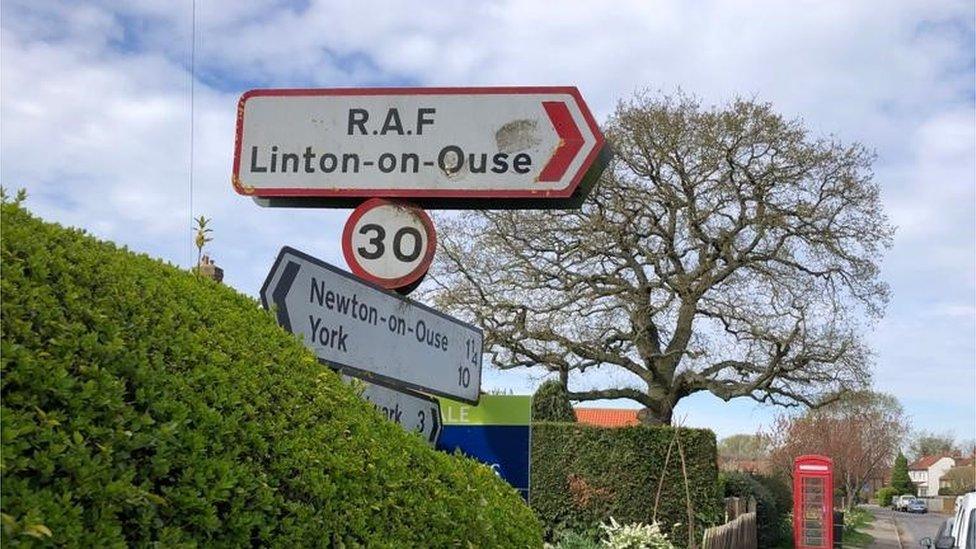Linton-on-Ouse: Withdrawal of asylum centre plan confirmed
- Published
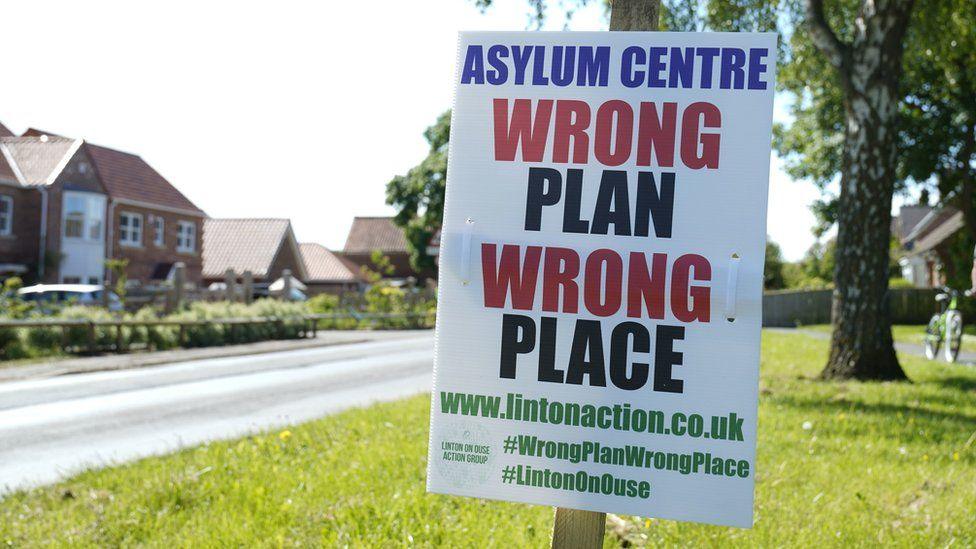
The plans for an asylum centre in North Yorkshire were opposed by villagers and Hambleton District Council
Plans to turn a former RAF station into an asylum seeker centre have been officially withdrawn, according to council bosses.
In April, the Home Office announced plans to turn the site at Linton-on-Ouse, in North Yorkshire, into an asylum centre for up to 1,500 men.
But villagers and local councillors opposed the decision.
Hambleton District Council leader Mark Robson described it as an "excellent outcome" for residents.
"Today we have finally received a response from the Home Office informing us of their decision not to progress current proposals for the use of the Linton-on-Ouse site as asylum accommodation.
"It is an excellent outcome for the residents of Linton-on-Ouse and all those living in the surrounding areas as well as for Hambleton District Council, all of which fought hard to oppose these plans," he said.
Had the council not intervened and challenged the government, there would have been "asylum seekers living on this totally unsuitable site", he added.
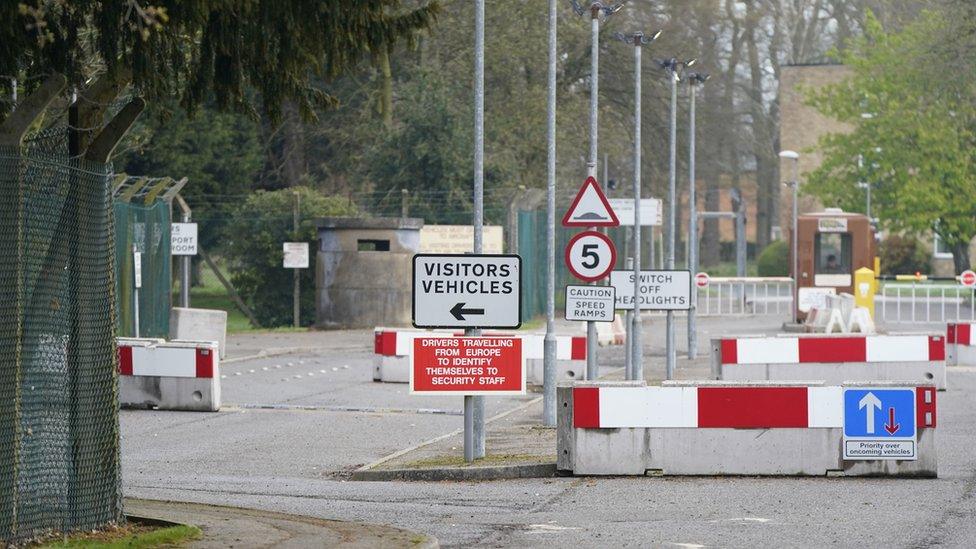
The Home Office previously said the centre at the former RAF station would be as self-sufficient as possible
Defence Secretary Ben Wallace had previously pledged to withdraw the offer of the site to the Home Office after a backlash over the plans.
However, as recently as this week, officials, including Kevin Hollinrake, Conservative MP for Thirsk and Malton, who had campaigned against the plans, had been calling for official confirmation.
Following the announcement by Mr Wallace in August, the government said it remained committed to "tackling illegal migration and stopping dangerous small boat crossings".
A spokesperson said: "The government will continue to identify appropriate sites for Greek-style asylum reception centres which will play a key role in reducing the number of asylum seekers in hotels, which cost the taxpayer more than £5m each day."

Follow BBC Yorkshire on Facebook, external, Twitter, external and Instagram, external. Send your story ideas to yorkslincs.news@bbc.co.uk, external
Related topics
- Published9 August 2022
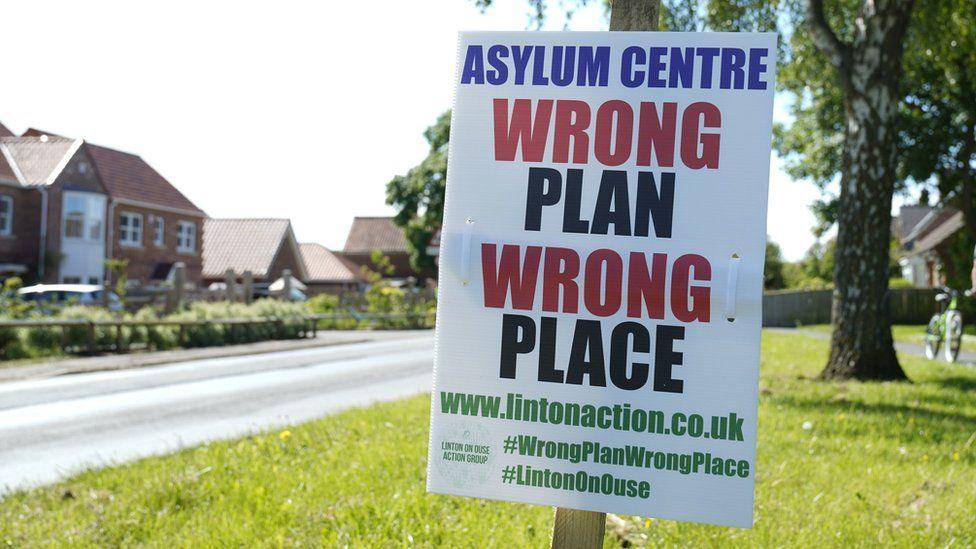
- Published30 June 2022
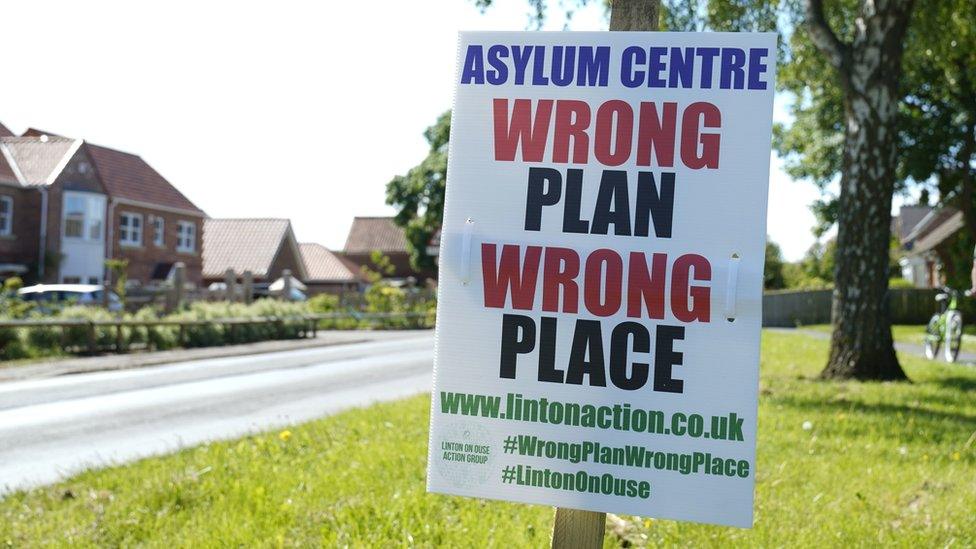
- Published14 April 2022
